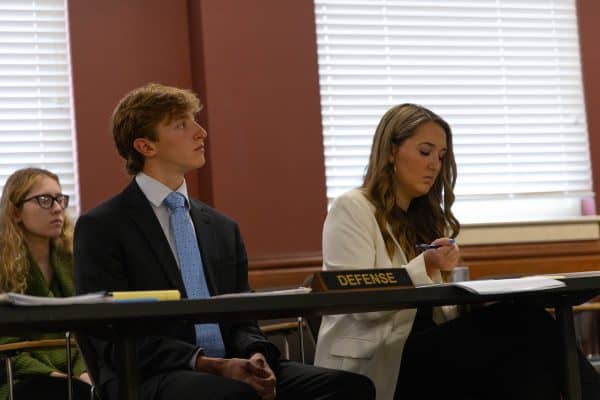Trailblazing footsteps

Pictured: Elliot Spillers
October 20, 2021
Correction: This story was edited on Oct. 22 to correct the name of Cleo Thomas, who was the first student of color to serve as the SGA president.
College graduation is simultaneously the most joyous and nerve-wracking experience for college students. Joyous because after all the hard work and late nights, your academic achievements have finally led to this moment. Nerve-wracking because now you are faced with the reality of going out to embark on your career, utilizing all you’ve learned and putting it into action.
Along with celebrating the graduates and their accomplishments, others such as family and friends feel they are a part of graduates’ success. Even more significance is attached when an embedded history of exclusion is now being changed through each graduate.
Trailblazers such as 2007 graduate Sonequa Martin-Green, a native of Russellville, Alabama, have left a mark at The University of Alabama. Martin-Green received her degree in theater. She starred in a UA production of “Romeo and Juliet” as a gender-swapped Mercutio and was a part of the Alabama Forensics Council.
Martin-Green has since collected acting credits in film and television. She had recurring roles on the second season of “Once Upon a Time” and as Sasha on the third season of “The Walking Dead.”
These roles were a stepping stone to her biggest role to date as the lead actor in “Star Trek: Discovery” as First Officer Michael Burnham. Martin-Green made history as the first Black woman to lead the “Star Trek” series. Martin-Green was awarded for her performance with a Saturn Award in 2018.
All of Martin-Green’s experiences at the University helped sharpen her skills. She credited her professors with supporting her and believing in her goals. In fact, she said her professors’ belief in her changed her in a prominent way.
“I will always have a connection to UA. It’s where I come from; it’s where the seeds were sown,” Martin-Green said. “I brag about it all the time. I love it when people ask me where I’m from, and I love it when they ask if I went to school, and I go, ‘Oh yeah, yeah, I went to The University of Alabama, and I got my theater degree, and it was just an excellent education.’”
The same can be said about Elliot Spillers. Spillers was a 2016 graduate of The University of Alabama with a bachelor’s degree in commerce and business management. He was involved in various campus organizations such as First Year Experience, the Center for Sustainable Service and Volunteerism, the A-Book editorial board, and the Sustained Dialogue program.
Spillers was also a senate assistant and the assistant vice president of student affairs with the Student Government Association. Each of these previous positions prepared Spillers to become SGA president.
Spillers’ presidency went beyond just his role on campus. Spillers was the second person of color to hold this position. Cleo Thomas was the first and held the position in 1976. Over three decades had passed since a person of color was elected as SGA president. Spillers’ win was an example of how inclusive the University was becoming.
Spillers’ campus work continued with advocacy for sexual assault survivors. He worked alongside the Women and Gender Resource Center. Spillers also campaigned for the creation of a vice president of diversity, equity and inclusion within the SGA.
Expanding upon a background of volunteer work and activism, Spillers is currently the project manager for the Equal Justice Initiative based in Montgomery, Alabama. He has worked on projects with the Legacy Museum: From Enslavement to Mass Incarceration. The museum informs individuals about the racial history of injustice.
From formative beginnings, both Martin-Green and Spillers had the University as their stepping stone to showcase their talents and passions. Each step has left an impression behind for other students as guidance and encouragement that their goals are also possible to achieve.
This story was published in the Legacy Edition. View the complete issue here.










